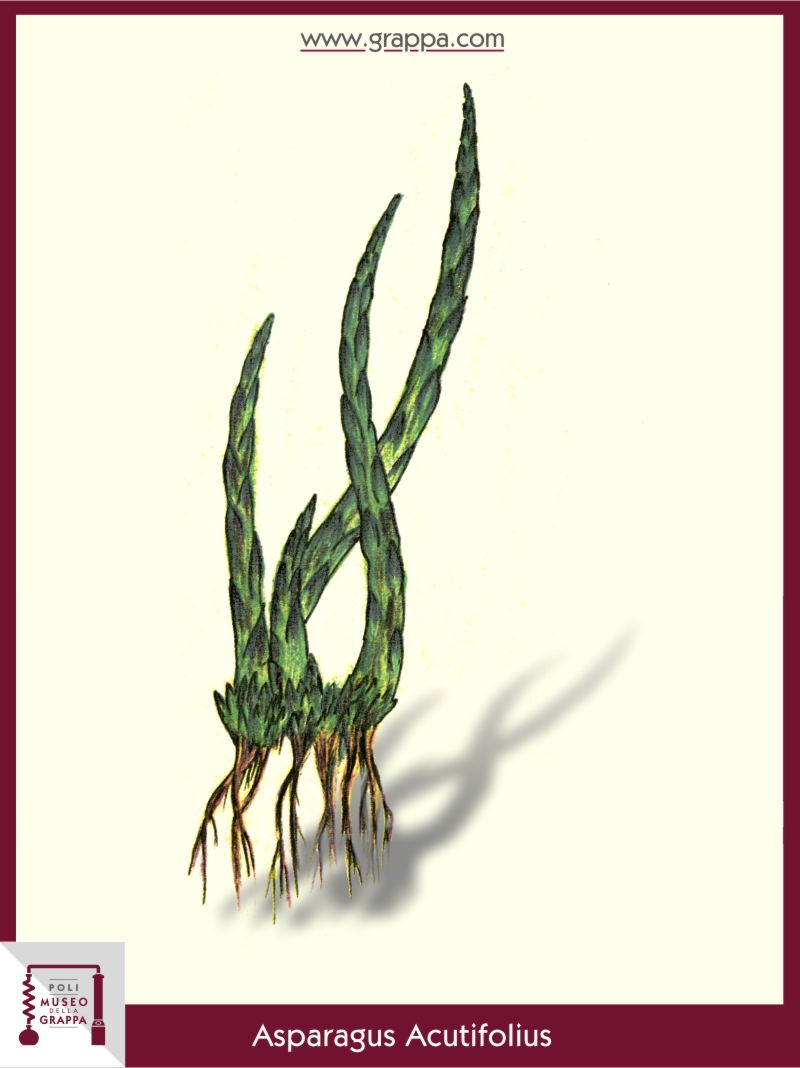Digestive and diuretic
- Plant: Wild Asparagus (Asparagus Acutifolius)
- Plant part: shoot
- Plant feauters: diuretic, slimming , anti-inflammatory, purifying, stimulates gastric juice production, laxative

-
Description:
"If the asparagus makes a good smell in all the body, it makes also the urine smell ..." From this quotation of Mattioli from the year 1550 it is to understand that the asparagus was honored at this time. But not only, already in the time of the Romans the diuretic properties of the plant were well-known, which thanks to Plinius was applied as an extraordinary medicine in "chest and back pains".
Concerning the unpleasant smell of urine, only in the nineteenth century it was possible to determine the cause. Chemical studies have identified the presence of a methylmercaptan in the body after the ingestion of asparagus, which is mainly excreted by the urine and consequently gives it the characteristic smell.
However, we do not speak of asparagus as food, which employed cooks of all kinds with the preparation of delicious dishes with its just germinated shoots. Recipes of asparagus dishes are thousands, but no one has ever thought of making a liqueur of it."If the asparagus makes a good smell in all the body, it makes also the urine smell ..." From this quotation of Mattioli from the year 1550 it is to understand that the asparagus was honored at this time. But not only, already in the time of the Romans the diuretic properties of the plant were well-known, which thanks to Plinius was applied as an extraordinary medicine in "chest and back pains".
Concerning the unpleasant smell of urine, only in the nineteenth century it was possible to determine the cause. Chemical studies have identified the presence of a methylmercaptan in the body after the ingestion of asparagus, which is mainly excreted by the urine and consequently gives it the characteristic smell.
However, we do not speak of asparagus as food, which employed cooks of all kinds with the preparation of delicious dishes with its just germinated shoots. Recipes of asparagus dishes are thousands, but no one has ever thought of making a liqueur of it.
-
Note:
In the case of suffering such as gout, gravel, rheumatism, diabetes and kidney stones, the consumption is disregarded.
The recipe
-
Ingredients:
- a small bunch of wild asparagus (about a dozen)
- 1 liter of Grappa
- a small bunch of wild asparagus (about a dozen) - 1 liter of Grappa -
Preparation:
We suggest a recipe for the preparation of a Grappa: leave a small bunch of the wild asparagus (about a dozen) for 2 months in a liter of Grappa in the shade, then filter the preperation and leave it to age for other 2 months.
The digestive liqueur has a pleasantly bitter, asparagus-typical flavor and a light green color. We suggest a recipe for the preparation of a Grappa: leave a small bunch of the wild asparagus (about a dozen) for 2 months in a liter of Grappa in the shade, then filter the preperation and leave it to age for other 2 months.
The digestive liqueur has a pleasantly bitter, asparagus-typical flavor and a light green color.
Poli Distillerie and
Poli Grappa Museum
Newsletter
Subscribe our newsletter to keep up to date with our latest news.